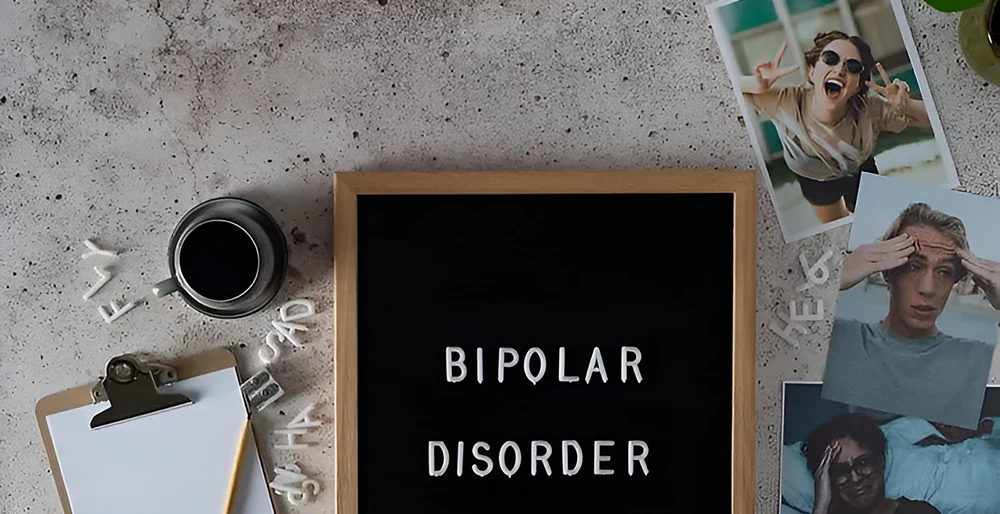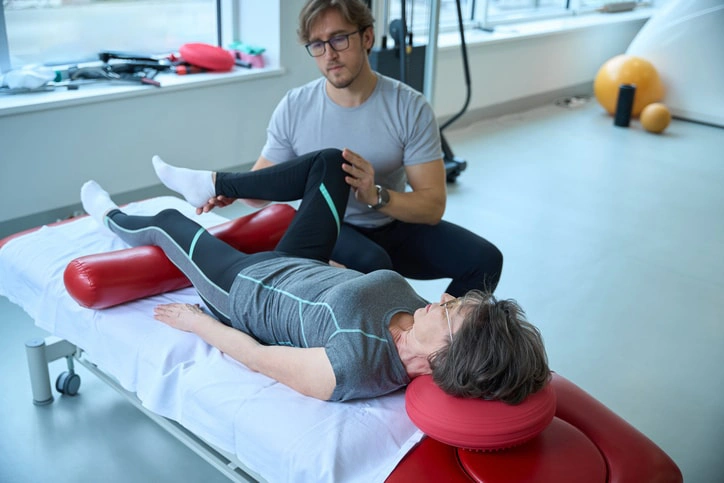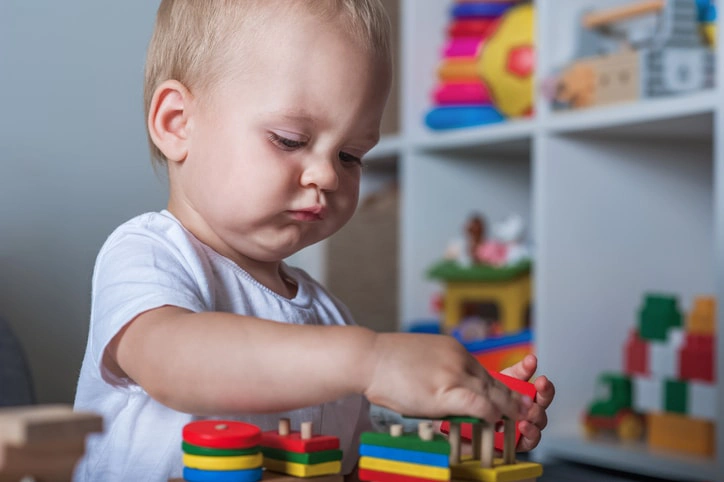How to get psychosocial support for your mental health condition
When you’re struggling with your mental health it can be hard to know where to go for help. You can get immediate assistance with your symptoms from Beyond Blue, Lifeline or your GP (and it’s really important that you do) but long-term, what kind of psychosocial support is available for everyday tasks, and building the life you want, while also managing your condition? In this article we will look at the many supports that can help people with a mental health condition and/or psychosocial disability live their life well, in a meaningful and contributing way.
Mental health conditions present differently in each person and because they are often invisible, they can be difficult for others to notice or understand. The stigma and discrimination associated with mental illnesses and psychosocial disabilities can be as debilitating as the condition itself.
You are not defined by your illness: people with mental health conditions can get treatment, put in place strategies, and find solutions to live happily and functionally. Everything won’t always run smoothly, but having a great support team around you and a plan for the times you need it can make a big difference.
There are clinical interventions and treatments that people with mental health conditions can access through the healthcare system to work to help with their symptoms. There is also a range of other non-clinical services and supports that can help someone with a psychosocial disability to live a positive life that is not defined by their diagnosis.
Some people with a mental health condition will have a psychosocial disability. Generally, people are considered to have a psychosocial disability if their mental health condition is enduring and results in substantial difficulties in taking part in everyday activities.
Read on to find out more about the range of mental health and psychosocial supports available, both through the NDIS and separate from the NDIS.

What is a mental health condition?
A mental health condition refers to alterations in thinking, mood, and behaviours and can include a range of symptoms that may be caused by life events (like exposure to traumatic events) or genetic factors. Mental health conditions can be temporary or lifelong and affect people differently.
Serious mental illnesses can make it difficult to maintain relationships, consistently perform at work and, at times, to manage the general demands of day-to-day life. By better understanding their mental health, and getting the right support in place, people living with mental health disorders can manage their condition and live their lives well.
Types of mental health conditions
There are various mood, anxiety, personality, and psychotic disorders that people can be diagnosed with.
Anxiety disorders
Bipolar disorder
Schizophrenia
Obsessive-compulsive disorder
Severe and persistent depression
Anxiety disorders
Anxiety disorders are a group of mental health conditions involving excessive and persistent feelings of fear, worry, and apprehension. The major types are generalised anxiety disorder (most common), obsessive-compulsive disorder, panic disorder, post-traumatic stress disorder, and social anxiety disorder (or social phobia). These are clinical anxiety disorders, and they are different from emotional anxiety.

Bipolar disorder
Bipolar Australia explains that bipolar disorder is a serious lifelong mental health condition, formerly known as manic depression, which features pronounced mood swings. The periods of low mood are referred to as ‘depressive episodes’ and periods of high mood are referred to as ‘manic’ or ‘hypomanic’ episodes. The condition is characterised by recurrent cycling between these distinct and contrasting episodes.
According to the Australian Psychological Society, bipolar disorder can look quite different in different people. For some people, episodes can last for three to six months and occur every few years while others may experience shorter but more frequent episodes over the course of one year. The Australian Bureau of Statistics reports that the condition affects 2.9% of Australians aged 16 and over, or 568,000 people.
Schizophrenia
SANE explains that schizophrenia involves changes in how a person perceives and interacts with the world. It can involve sensory changes and distortions, such as seeing hearing, smelling or feeling things others do not. It can also involve having unusual thoughts or beliefs that others do not share. These may occur episodically, or may persist for longer periods.
Schizophrenia is part of a category of diagnoses called ‘schizophrenia spectrum disorders’ or ‘psychotic disorders’. These disorders share similar symptoms, especially psychosis. However, they have some differences in symptoms and how long they last. Other schizophrenia spectrum disorders include schizophreniform disorder, schizoaffective disorder, and brief psychotic disorder.

Obsessive-compulsive disorder
Obesessive-compulsive disorder (OCD) isn’t about being tidy or liking things neat and orderly. It’s a serious condition where you feel an overwhelming need to do or think something again and again. It can make it hard to get through everyday activities and can lead to social disability, such as children unable to go to school or adults becoming housebound.
OCD can occur at any time during your life and symptoms can include:
repetitive thoughts or worries that aren’t rational
a need to constantly repeat the same activity exactly the same way.
Depression
If sad, moody or low feelings persist for more than two weeks, it could be a sign that you have depression. Depression can affect people differently, causing you to feel irritable, lose interest in things you usually enjoy, lack energy, find it hard to concentrate, or change your sleeping patterns. It interferes with daily life and relationships.
How is a mental health condition different from a psychosocial disability?
A person may be considered to have a psychosocial disability if their mental health condition
is ongoing, significant, and makes it difficult to do everyday tasks such as going shopping, looking after yourself, or working. The condition can be ongoing or episodic but it is likely to be with you for life. Not all people with a mental health condition will have a psychosocial disability.
In the same way as other disabilities can affect the way a person uses their body or brain, a psychosocial disability can impact a person’s function, which affects their ability to interact with others and their environment, perform tasks, and learn new skills. It may impact the way we understand, think, and feel about things.
A psychosocial disability is not about a diagnosis, it is about the effect it has on a person’s ability to live life in the way they want to.
If the mental health condition causes a functional impact and creates barriers to equality with others, this is when it might be considered that the person has a psychosocial disability. You can have a psychosocial disability without a clinical diagnosis of a mental health condition. The NDIS states you do not need to disclose your diagnosis to be eligible, however, we know this is the preferred option when assessing access. The NDIS will not assess based on the condition or label for the group of symptoms you experience, they will assess based on the impact of your mental health condition.
A psychosocial disability can prevent someone from:
Getting a job
Accessing training
Joining in social activities
Getting or keeping a home
Achieving their goals.
Support for people with a mental health condition or psychosocial disability
If you have a mental health condition or psychosocial disability there is plenty of support available to help manage both the symptoms of your condition and your day-to-day life. With the right support in place, there is no reason why having a psychosocial disability should stop you from achieving what you want in life.
Clinical treatment
Support and treatment requirements vary a lot between individuals. Many people find clinical or health support helps them manage their condition. These might be provided by a GP, a medical specialist (like a psychiatrist), or clinical support from a hospital.
Treatment often includes medication prescribed by a psychiatrist, and psychological therapies such as cognitive-behavioural therapy, family-focussed therapy, interpersonal and social rhythm therapy or psychoeducation. It can include acute care, rehabilitation, therapy, and medication to address symptoms.
Some people with a mental health condition also see allied health practitioners, like a psychologist, or exercise physiologist. These types of services are available in the healthcare system and generally the rule here is the healthcare system funds services that are related to improving clinical symptoms and the NDIS will fund services that relate to maintaining and improving function.
Psychosocial support services
Separate from medical treatment is a range of non-clinical supports that don’t treat the illness or condition itself but provide specialised support to help people overcome the barriers that prevent them from living their life. These psychosocial supports assist a person to regain their independence, learn new skills, build confidence, organise their priorities and understand their rights – and much more.
Support to help manage the functional impact of a mental health condition on your day-to-day life is critical.
Psychosocial support services include recovery coaching, counselling, support coordination, and specialist support coordination. These are the types of supports the NDIS might pay for, if you have an NDIS plan with this type of funding included.
Psychosocial support services under NDIS
If you have a psychosocial disability, you may qualify for an NDIS plan, which gives you funding for the support services you need in everyday life. If you have an NDIS plan with funding under Capacity Building – Support Coordination or Capacity Building – Improved Daily Living, you will be able to use your plan to pay for psychosocial support services. Read more in our section on NDIS support for mental health conditions.
How do psychosocial support services help?
Psychosocial support services can help with your everyday functioning, relationships, building social skills, and achieving your work goals, whether you already have a job or are working towards one. They provide holistic support for both your mental and physical health.
Recovery from mental health conditions
Yes, people can recover from chronic and major depression, severe anxiety, schizophrenia, bipolar disorder, or similar conditions. There is most definitely life after diagnosis, and it can be positive and fulfilling.
This doesn’t necessarily mean that you no longer have the condition at all – for many people, they will always need to carefully manage their mental health. But it does mean that the condition won’t stop you from living the life you want.
When clinicians and services help people with mental health conditions to explore and prioritise personal recovery, recovering from the disabling impacts of our conditions is not just possible, it’s entirely probable and recovery coaching is one tool that can help you to reach recovery quicker.
What is personal recovery?
So, what does it mean to “recover” from a psychosocial disability? Recovery is a journey, not a destination. For an individual with a psychosocial disability, seeking support and recovery means being closer and closer to achieving optimal and healthy social and emotional well-being.
The most widely referenced definition of recovery was put forward in the 1990s by the service user movement:
“[Recovery] is a way of living a satisfying, hopeful, and contributing life even with the limitations caused by illness. Recovery involves the development of new meaning and purpose in one’s life as one grows beyond the catastrophic effects of mental illness.” (Anthony, 1993)
Mental health recovery is not a cure as much as reflecting on life post-diagnosis, with the outlook that people experiencing mental health conditions can make sense of their experience. As you are on your recovery journey, you are working towards a life that is full of possibility, and is rewarding, while continuing to manage your day-to-day self-care.
Recovery coaching
Recovery coaching is where a qualified professional who understands psychosocial disability partners with you to organise your supports and help you work towards your goals. A psychosocial recovery coach is a term used in the NDIS to refer to trained individuals who can support people with psychosocial disabilities.
A recovery coach can help you become more socially and economically independent by developing your social networks and empowering you to take better steps toward the life you want. Recovery coaches aim to give you better control over your daily life, including self-management, overcoming negative feelings and isolation, and facilitating positive emotions.
Recovery coaches complement other forms of support, acting as your go-to person for bringing together all the supports you need to assist you to live a good life, in the way you want.
If we compare the definitions of recovery and coaching, we find that the two fit together beautifully.
Recovery is concerned with people developing new meaning and purpose in order to live more ‘satisfying, hopeful and contributing lives’ while managing the impacts of their condition.
Coaching assists people in developing ways (meaning and purpose) to access their inner potential (strengths and characteristics) to increase performance (contributing, satisfying, and hopeful lives). Coaching is best defined as:
“Unlocking people’s potential to maximise their own performance. It is helping them to learn rather than teaching them.” (Whitmore 2017).
We see coaching used in many different ways, for example:
Executive coaching
Life coaching
Career coaching
Sports coaching
Recovery coaches are required to have experience and knowledge in handling psychosocial disabilities and mental health issues. To ensure the quality of their service, coaches are required to have mental health qualifications and at least two years of experience doing related work.
How does recovery coaching work?
Recovery coaches, like any other coach, don’t teach coachees (people accessing coaching). Recovery coaches guide coachees on their own personal recovery journey of exploration of making meaning, changing meaning, understanding meaning, and shaping their life’s purpose.
Recovery coaches facilitate healthy and positive environments where the coachee can safely explore their vision for their future, generate hope, exercise control, ownership, and accountability for the direction of their recovery journey.
Psychosocial recovery coaches are responsible for:
Providing professional support for the person through recovery planning.
Collaborating with other professionals and services to provide the assistance needed by the person with the disability.
Coaching the individuals to strengthen their decision-making and resilience to help them have better control over their lives.
Assisting individuals in building positive connections with their friends, family, and society as a whole.
Providing adequate documentation of the person’s condition, progress, and recovery plan.
Benefits of recovery coaching
Goals to aim for: Develop a personalised recovery plan with clear recovery goals, which shows how all your supports fit together
Organised support services: Guidance choosing and managing support services to get the best out of your NDIS plan
Making progress: Help with motivation, focussing on your strengths, goals, and resilience
Back-up when you need it: Support advocating for your needs and preferences with NDIS and clinical services
Future planning: Help with advance directives, discharge planning and relapse prevention
A coach in your corner: A go-to person who will take on the challenges and celebrate the wins with you.
A recovery coach is your champion and advocate. They listen to you without judgment and support you to achieve your goals. Recovery coaches work collaboratively with you, your family, carers, and other services to choose, book and manage your NDIS supports. They understand how the NDIS works, and how to spend your budget most effectively to get the right support for your situation.
What is a mental health recovery plan?
A recovery plan clarifies the roles and responsibilities of the participant, the recovery coach, clinical supports, NDIS supports, and informal supports (like friends and family). Your coach will usually involve key service providers from the start, as you develop your recovery plan. It’s really important that everyone is on the same page and working together. This could be a meeting all together, or by sharing information by phone or email – whatever will work best for your situation.
A recovery plan will:
Map out short-term and long-term goals for the individual.
Identify fluctuations in the recovery journey and make necessary tweaks to the plan.
Support the individual by outlining their responsibilities in recovery.
Show where other NDIS supports, informal supports and clinical supports fit together.
Recovery plans have different timelines, but usually cover extended periods to provide the best quality of support for you.
What is an independent psychosocial recovery coach?
An independent recovery coach (like Goal Coach) doesn’t provide any core daily supports, meaning they can actively work with your other services – without any conflict of interest – to make sure you’re being supported the way you choose.
NDIS support for mental health conditions
If you have a psychosocial disability, or if you think you might, you could be eligible for the NDIS, which provides government funding to people with a disability to help them pay for the services and supports they need because of their disability. If your condition is permanent and affects your ability to do everyday things then the NDIS may help you to get the support you need. Read more information about NDIS eligibility for psychosocial disabilities and mental health conditions.
NDIS mental health providers can include NDIS psychosocial support such as counsellors and coaches, as well as everyday support such as cleaners, transport providers and support workers if you need them because of your psychosocial disability.
It’s important to to note that the NDIS focusses on the supports that help you with everyday tasks, connecting with your community and building your skills. Supports that help manage the symptoms of a psychosocial disability are part of the medical/healthcare system. Learn more in our Guide to mental health and the NDIS.
Recovery coaching under the NDIS
Recovery coaching is available to NDIS participants with a psychosocial disability, who have specific funding in their plans for recovery coaching or support coordination. The recovery coach line item is tailored to the needs of people with primary psychosocial disability, with a focus on coaching and collaborating with other services.
Price guide for NDIS recovery coaching
Recovery coaching is a funded support available under the NDIS for people with a psychosocial disability. The NDIS price guide sets price limits for NDIS-funded services.
What is the NDIS line item for psychosocial recovery coaching?
Funding for a psychosocial recovery coach comes under the Capacity Building – Support Coordination category, and it has its own line item called ‘psychosocial recovery coaching’. Different price limits apply depending on when the support is given (time of day and day of the week) and whether you are in a remote area or not. As support coordination is a part of the recovery coach role, the NDIA will generally not fund both types of supports in a participant’s plan.
NDIS price guide July 2023: Psychosocial recovery coaching
Different price limits apply for psychosocial recovery coaching depending on the time of day and day of week on which the support is delivered. These price limits were current from 1 July 2023 and include the 1% temporary loading.
Weekday daytime: $98.30 per hour (non-remote), $137.62 per hour (remote), $147.45 per hour (very remote)
Weekday evening: $108.31 (non-remote), $151.63 (remote), $162.47 (very remote)
Weekday night: $110.31 (non-remote), $154.43 (remote), $165.47 (very remote)
Saturday: $138.33 (non-remote), $193.66 (remote), $207.50 (very remote)
Sunday: $178.36 (non-remote), $249.70 (remote), $267.54 (very remote)
Public holiday: $218.38 (non-remote), $305.73 (remote), $327.57 (very remote)
If you’re not sure whether you are in a remote area, you can use this map tool to find your MMM code. Tick the box that says ‘2019’ and enter your address. The NDIS classifies zones 1-5 as non-remote, 6 as remote and 7 as very remote. There are a couple of exceptions, so if you live in the following locations, check pages 27-28 of the NDIS Price Guide 2023-24 for more information regarding specific postcodes in those areas:
Hay, Balranald, Broken Hill, Ravenswood and Warren (NSW)
Roma, Emerald, Moranbah, Dysart, Charters Towers, Cardwell (QLD)
Merredin, Kalgoorlie, Kambalda, Geraldton (WA)
Gunbalanya (NT)
NDIS counselling
Counselling can also be a valuable psychosocial support for people with mental health conditions. NDIS counselling is a therapeutic service delivered by accredited professionals, which can help you to look after your mental health and improve personal skills.
Counselling provides a safe space for you to:
Hay, Balranald, Broken Hill, Ravenswood and Warren (NSW)
Roma, Emerald, Moranbah, Dysart, Charters Towers, Cardwell (QLD)
Merredin, Kalgoorlie, Kambalda, Geraldton (WA)
Gunbalanya (NT)
Counsellors are trained to listen, help you sort out your feelings, and develop strategies to help you overcome problems and work towards a happy, confident, and functioning you. They work at your pace and support you to come up with solutions that will work for you.
NDIS counselling is funded from the Capacity Building category, under Improved Daily Living – a different part of the NDIS plan than recovery coaching and support coordination, which both come under Capacity Building – Support Coordination.
This means that you may be able to access both coaching/support coordination AND counselling, and in fact, many people working with Goal Coach do choose to have both. The two services are complementary and can work well together, helping you to advance your goals and reduce barriers you may be facing – just in different ways.
From 1 July 2023, the NDIS Price Guide maximum for counselling is $156.16 per hour for non-remote areas, $218.62 per hour for remote areas and $234.24 for very remote areas. There is no separate pricing for different times or days.
Choice and control in recovery coaching
A key part of the way the NDIS works is ‘choice and control’. This means that NDIS participants are in control of their support services, and they choose which services they will engage to support them.
What this means is that, while recovery coaches are there to help you make decisions about your support services, they never make the choice for you. For example, they might help you to think about what’s important to you in terms of how your services are delivered, and they might help you to find some options. But ultimately it’s your life, your NDIS plan and your decision.
Latest NDIS changes to recovery coaching
From November 2022, the NDIS started testing a new system. The new system is currently being tested in Tasmania ONLY. Tasmanian participants with their plan ending will be part of the test. If a participant needs changes to their plan before the reassessment date, they will also be part of the test.
Some of the changes relate to recovery coaching:
At the NDIS plan meeting, a participant with support coordination or recovery coach services will be assisted by the planner to identify their preferred provider to deliver this service if they don’t have a provider in place.
The NDIA planner will place a request for the support coordination or recovery coach services in the new my NDIS provider portal. Providers will have 4 days to accept the request.
Once support coordination or psychosocial recovery coaches accept a request for service they need to make sure the participant nominates them as a participant-endorsed provider and their details are recorded in the participant’s plan.
Participants can now choose a support coordination provider and provide consent to view their plan in the planning and implementation process. With participant consent, support coordinators and recovery coaches can view a participant’s plan information and budget once the request for service (RFS) has been accepted.
Progress reports from support coordinators and recovery coaches will be required and can be submitted in the my NDIS provider portal.
As part of the test in Tasmania, the NDIS has moved from 3 to 4 support types, which are Core, Capacity Building, Capital and Recurring. They have also split some of the existing support categories to make them easier to understand, so there are now 21 categories instead of 15. The support items have not changed.
For psychosocial recovery coaching, there has been a minor change to the category name. The Support Coordination category name (under the capacity building support type) will be changed to Support Coordination and Psychosocial Recovery Coaches.
NDIS for Borderline Personality Disorder (BPD) and schizophrenia
Mental illnesses like borderline personality disorder and schizophrenia are considered psychosocial disabilities if the mental illness is significant, and makes it difficult to do everyday tasks such as going shopping, looking after yourself or working. This is often the case with bipolar disorder, which makes it hard to consistently cope at work, home, school or socially. The illness can be ongoing or episodic but it is likely to be with you for life.
Are BPD and schizophrenia disabilities?
Some people with mental illnesses like schizophrenia or borderline personality disorder will also have a psychosocial disability as a result of the condition, and this is when you might be eligible for the NDIS. A psychosocial disability is a persistent, enduring and complex mental health condition. It can severely impact a person’s day-to-day living – this is what makes it a disability. Can NDIS recovery coaching help with BPD or schizophrenia?
Yes!
Does NDIS recovery coaching cover depression?
If severe and persistent anxiety or depression is ongoing, significant, and makes it difficult to do everyday tasks such as going shopping, looking after yourself, or working, it might be considered a psychosocial disability. If you are accepted on the NDIS with a psychosocial disability, your plan should include recovery coaching. Discuss this with your NDIA planner to make sure recovery coaching is funded in your NDIS plan.
If you are not on the NDIS, you can still access psychosocial recovery coaching to help manage your depression and the impact it has on your life.
Tips for mental health support
Consider asking a close friend or family member to come to your medical appointments. As well as providing emotional support, their perspective about your illness and treatment could be valuable. Having another person at appointments can also help you to remember what was discussed.
If you have been receiving treatment in a hospital or mental health facility, a recovery coach can help you to make plans for when you go home.
Learn the warning signs that you are becoming unwell. A recovery coach can help you reflect on past experiences and better understand these signs.
Prepare a mental health safety plan including details such as the warning signs, as well as tools and strategies to help you cope and get through a crisis. Share the plan with people close to you and keep it somewhere that’s easily accessible to you and them.
If you find everyday tasks overwhelming while you’re recovering, allow people to help you. Often they want to do something practical to help, but are not sure how. They might be able to collect your groceries for you, cook you a meal or organise services.
If you want to find out more about how Goal Coach’s recovery coaching can support you to live a life beyond the label of psychosocial disability, book a free 15-minute chat with one of our friendly coaches.










